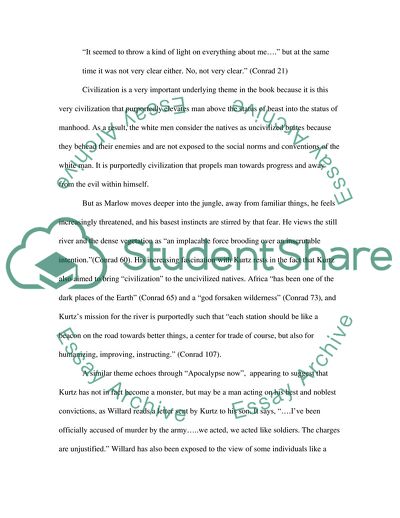Cite this document
(The Books Heart of Darkness by Joseph Conrad and the Film Apocalyps Book Report/Review, n.d.)
The Books Heart of Darkness by Joseph Conrad and the Film Apocalyps Book Report/Review. Retrieved from https://studentshare.org/literature/1709802-heart-of-darkness-and-apocalypse-now
The Books Heart of Darkness by Joseph Conrad and the Film Apocalyps Book Report/Review. Retrieved from https://studentshare.org/literature/1709802-heart-of-darkness-and-apocalypse-now
(The Books Heart of Darkness by Joseph Conrad and the Film Apocalyps Book Report/Review)
The Books Heart of Darkness by Joseph Conrad and the Film Apocalyps Book Report/Review. https://studentshare.org/literature/1709802-heart-of-darkness-and-apocalypse-now.
The Books Heart of Darkness by Joseph Conrad and the Film Apocalyps Book Report/Review. https://studentshare.org/literature/1709802-heart-of-darkness-and-apocalypse-now.
“The Books Heart of Darkness by Joseph Conrad and the Film Apocalyps Book Report/Review”, n.d. https://studentshare.org/literature/1709802-heart-of-darkness-and-apocalypse-now.


